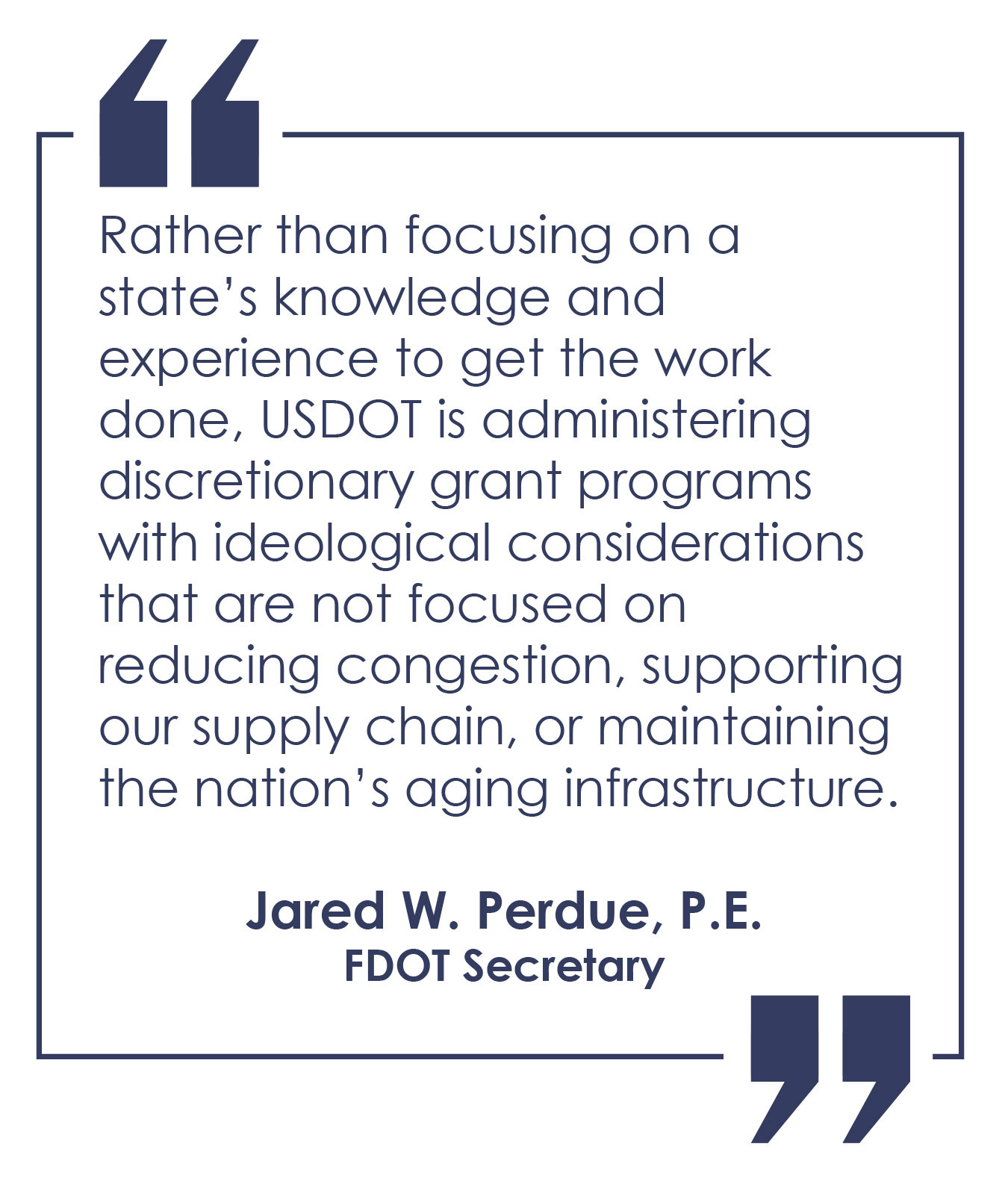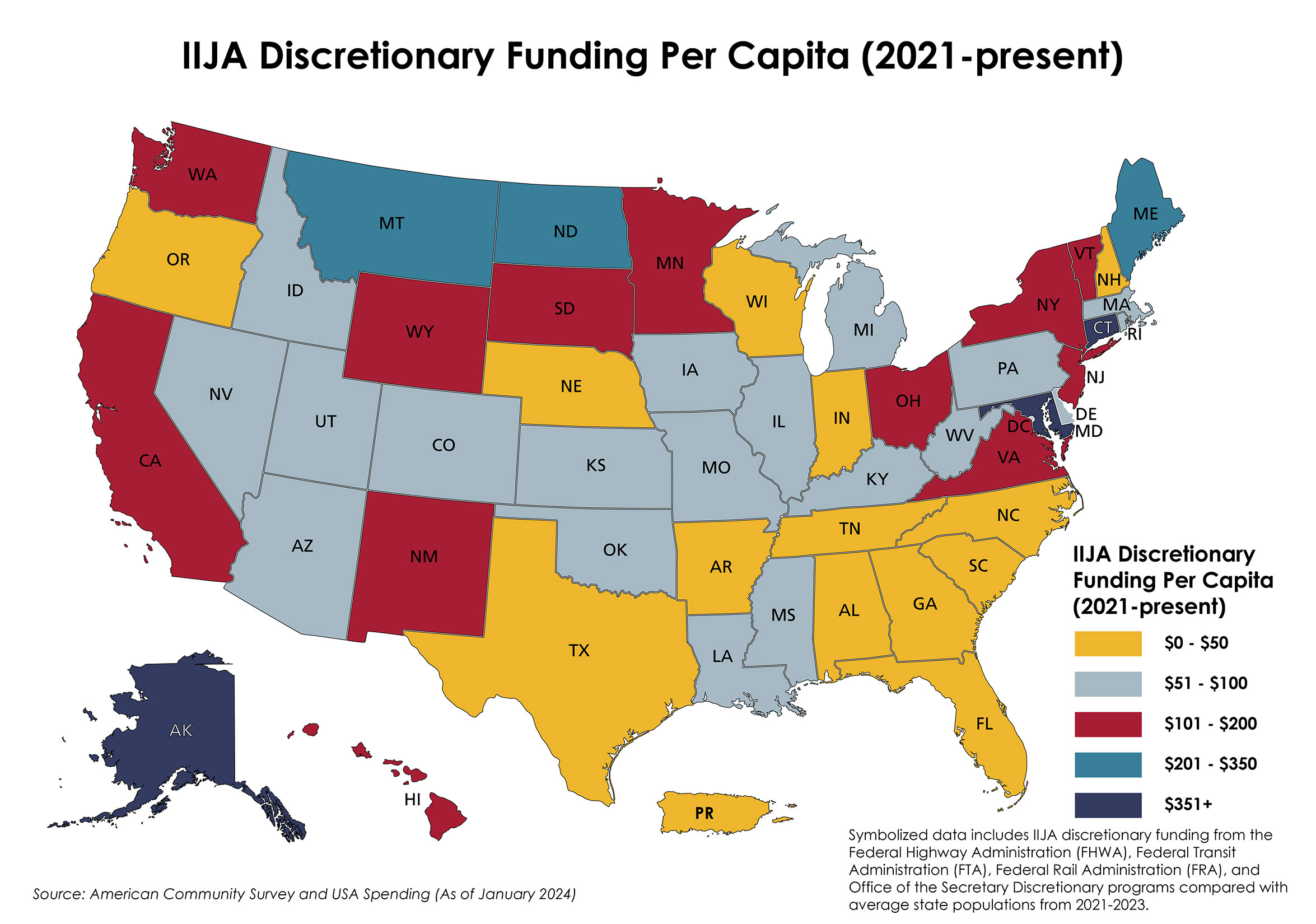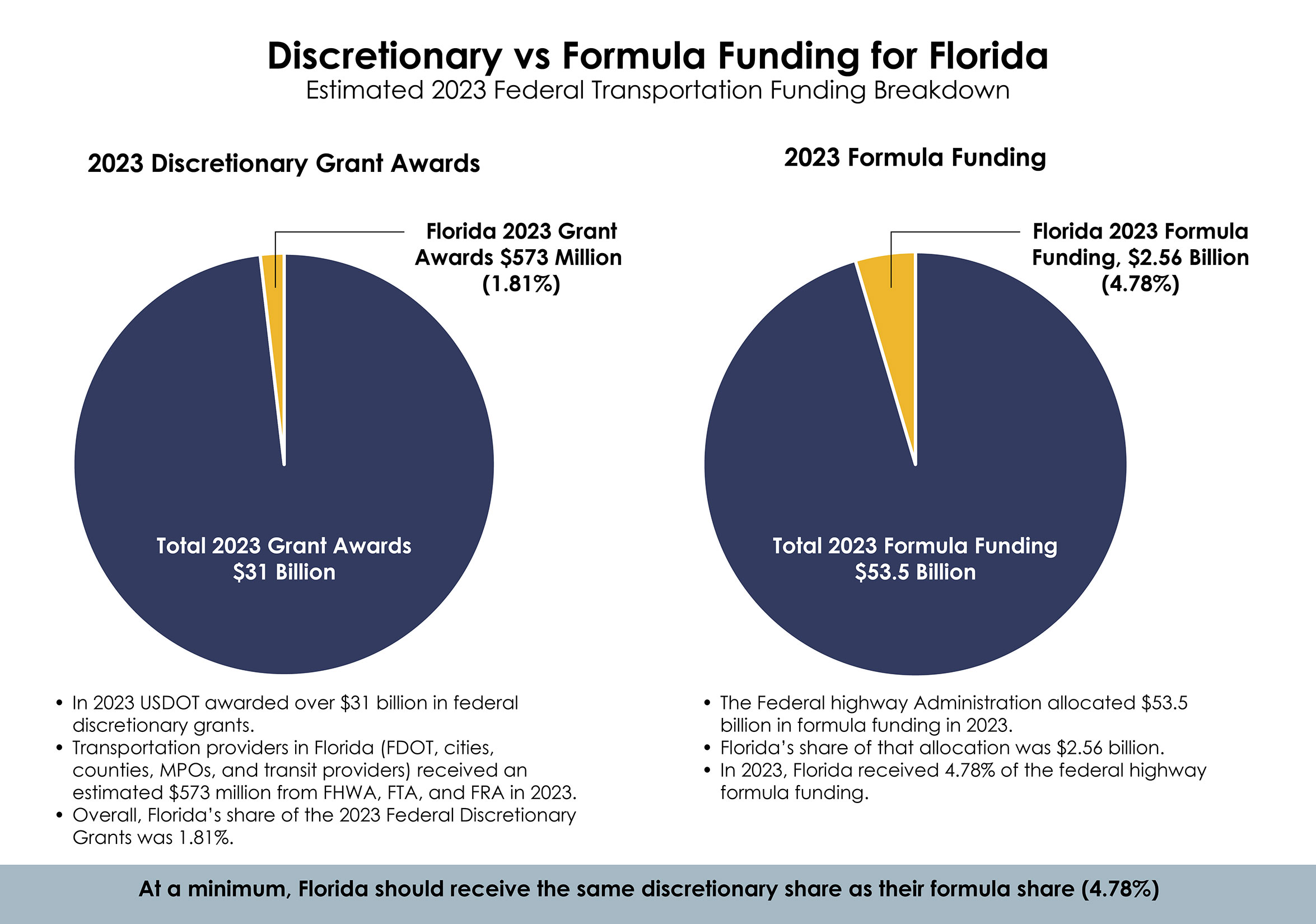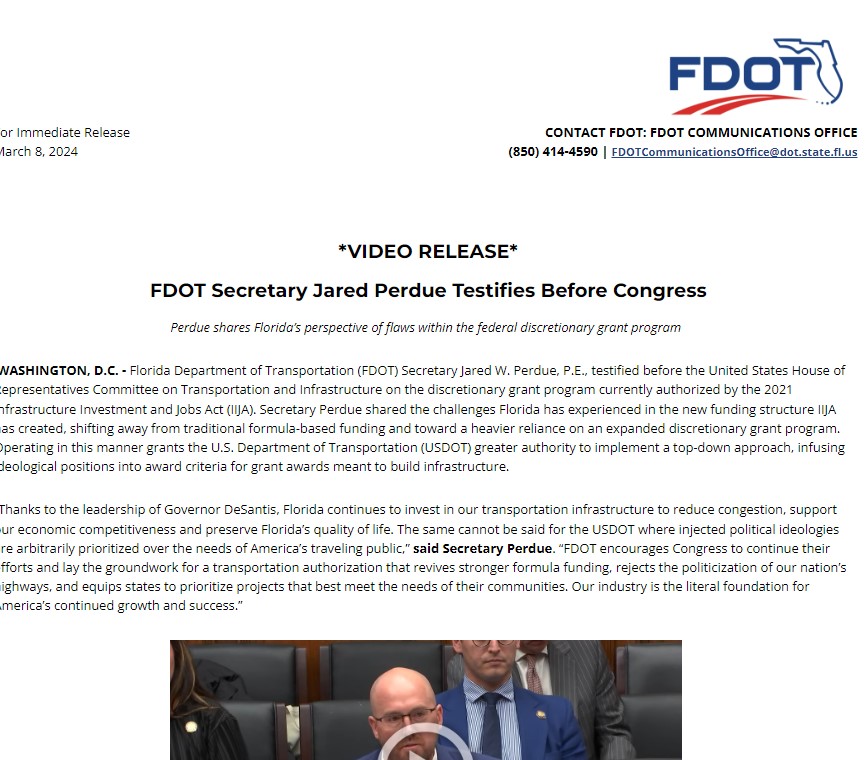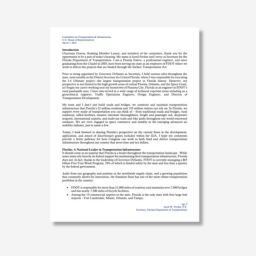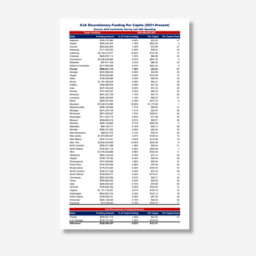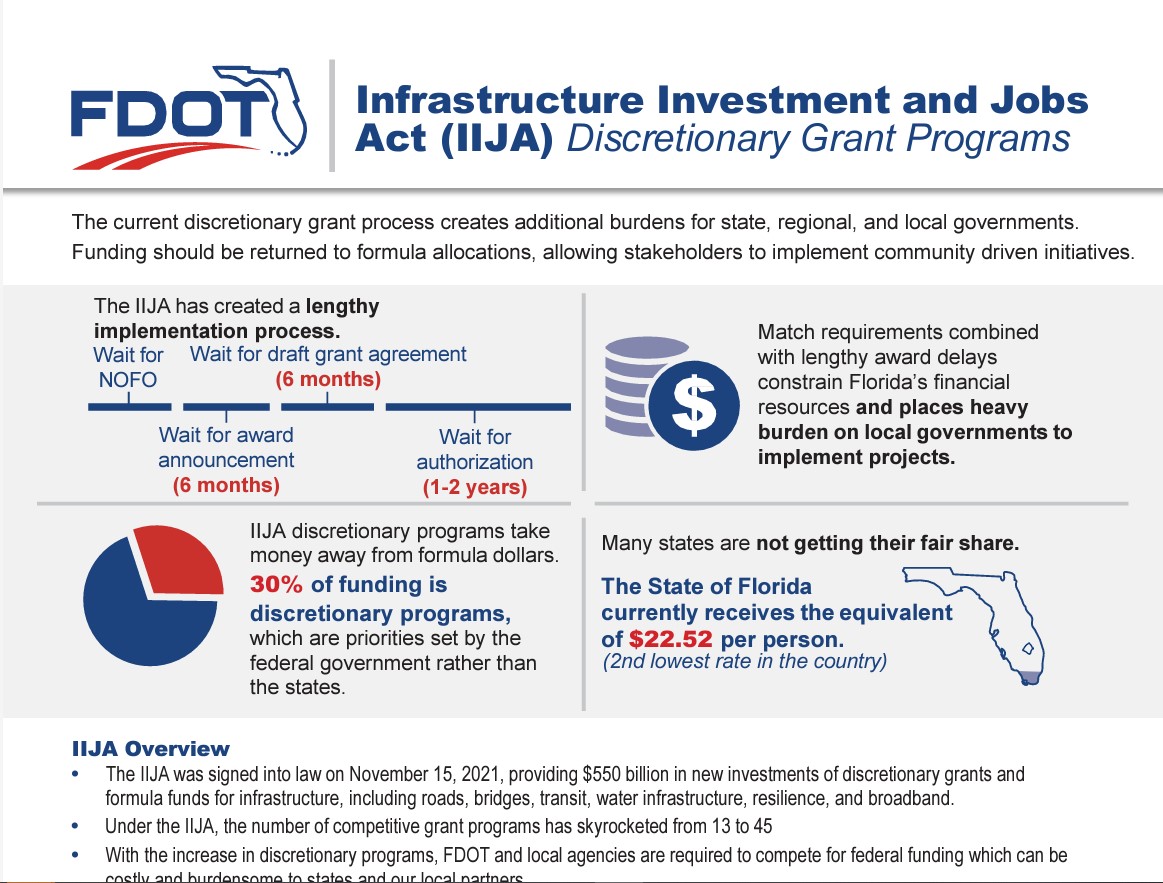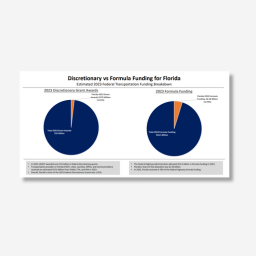The Failures of Discretionary Grant Programs
USDOT awards discretionary grants by competitively selecting transportation projects nationwide based on various criteria. However, the current discretionary grant process heavily burdens state transportation departments and applicants, unfairly favors some projects over others, and considers non-transportation factors when making funding decisions. This has led to situations where states like Florida, despite being the third largest state, are at a stark disadvantage in receiving discretionary funding awards.
IIJA deviated from a time-tested authorization structure for funding the country’s infrastructure. As one of those deviations, USDOT has made it clear that non-pecuniary factors like DEI and ESG considerations, may take priority when selecting which transportation projects are most important for our communities. These “priorities” are clearly seen in the goals of discretionary grant programs.
On the other hand, the formula allocation of funds offers a more efficient and practical approach. It allows states to develop infrastructure tailored to their specific needs and supported by their communities, which is often overlooked by the current discretionary grant process.
Over the next two years, Florida will continue leading the fight against special interests alongside likeminded states to hold the line during subsequent transportation authorizations by emphasizing more robust formula funding, promoting efficiency within the USDOT, avoiding bureaucratic hurdles, preventing the politicization of the nation's highways, and allowing state-based decision making.
Let States Lead
Florida continues to lead the charge amongst states in opposition to the new top-down funding structure IIJA has created, shifting away from traditional formula-based funding and toward a heavier reliance on an expanded discretionary grant program.
Operating in this manner grants the USDOT greater authority to implement a centralized and politicized approach, infusing ideological positions into award criteria for grant awards meant to build infrastructure.
In March 2024, Secretary Perdue shared Florida’s perspective before the United States House of Representatives Committee on Transportation and Infrastructure. To view Secretary Perdue’s full, written testimony, please click HERE.
Climate IIJA
In 2023, as tracked on the Climate Program Portal’s Outcomes Dashboard, federal agencies announced $74 billion in funding for climate programs, nearly tripling the total from 2022 ($29 billion). The majority of 2023’s climate funding went to transit and rail projects, followed by electrification projects like purchasing battery-electric buses and charging equipment, and hydrogen. The most significant portion of this funding was awarded under two large competitive IIJA programs: the Federal-State Partnership for Intercity Passenger Rail Grant Program and the Regional Clean Hydrogen Hubs. Through December 2023, nearly 100 climate-related programs had issued 158 funding awards, supporting about 8,000 projects in all 50 states, the District of Columbia, and seven U.S. territories.
The increasing pace of investment continues into 2024 as federal agencies have already announced $45 billion. The laws appropriate $373.8 billion for climate programs (excluding tax credits and loans). Through May 8, 2024, agencies have announced $150 billion, meaning that 40 percent of climate funding has been announced.
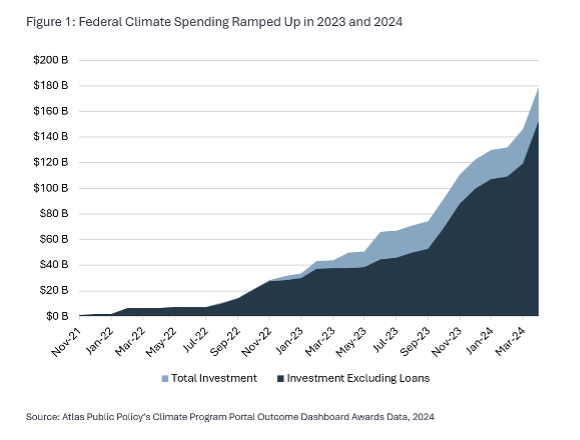
Equity IIJA
USDOT is in the process of implementing the Justice40 Initiative created by Executive Order 14008, Tackling the Climate Crisis at Home and Abroad. Justice40 is an all-of-government approach that sets a goal of 40% of the benefits of certain federal investments flowing to disadvantaged communities. It is one of many initiatives US DOT is implementing to advance equity.

